Exercise In The Menopause

Regular exercise is essential for women in the menopause as it helps to boost our energy levels, maintain muscle tone, build bone density and maintain good fitness levels to sustain a healthy weight, reduce stress and improve our quality of general life.
Why is exercise so important in the menopause?
Our oestrogen hormone is responsible for stimulating our body metabolism, as well as our bone and muscle mass, and when this hormone is fluctuating and falling in the menopause, we will see a transition in our body composition i.e. we can gain weight (5-7 pounds on average), we can shift our weight in terms of carrying it around our mid-section, instead of our breasts, hips and thighs, and we can experience weakened bone and muscle strength.
Exercise in the menopause offers many benefits, including:
-Maintaining a stable body weight, prevent muscle loss and gaining body fat
-Reducing the risk of intense and frequent menopause symptoms
-Strengthening bone density and lowering the chance of fractures and osteoporosis.
-Boosting mood and reduces anxiety and stress levels
-Alleviating depression and boosts brain function
What are the best exercises for the menopause?
Aerobic activity - dancing, walking, jogging, cycling, swimming or water aerobics
Strength training - weight machines, hand-held weights, resistance tubing
Stability and balance - yoga, pilates, tai chi
The wonderful thing about exercise is, there isn't one ‘best’ way to keep active, our joints mobile and our heart healthy, the truth is that any movement that gives you a sense of empowerment and play, this is the best exercise for you.
If you are a beginner to exercising your body, make sure you start small i.e. a 10-20 minute session and gradually increase the session time and intensity. Make sure you take it slow and aim to have a balance between said exercise methods to keep your movement dynamic and challenging for your mind and body.
Remember to stretch after your physical activity as it improves flexibility and lessen the risk of injury during exercise.
What can help for exercising in the menopause?
Set a sustainable exercise regime per week that is realistic for your personal lifestyle and energy levels. Remember that moving your body doesn't always have to be in a gym - join your local sports team if you have a preferred interest outside gym offerings. If you are feeling self conscious about any body changes or symptoms that disrupt your body’s ability to move more intensely i.e. fatigue, joint pain, hot flushes, you can exercise at home or outdoors if you feel more comfortable.
Disclaimer:
Become™️ has a wonderful team of experts who all helped in the writing of this content. The opinions expressed within this page are the opinions of many people we asked, and from information we researched online. Become™️ is not responsible for the accuracy, completeness, suitability, or validity of any information on this page. All information is provided on an as-is basis.



